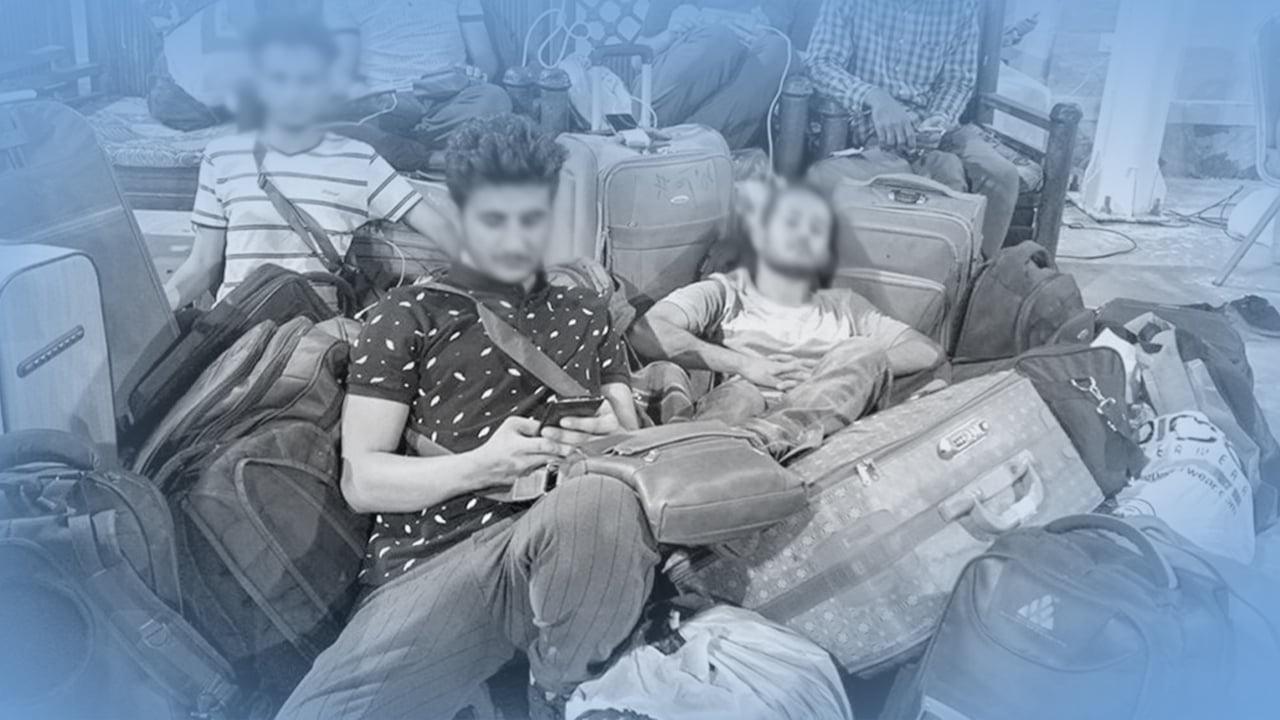Monthly Briefing / January – 2024

| Getting your Trinity Audio player ready... |
POLITICAL SCENE
During the month of January 2024, Yemen witnessed significant political and military developments, most notably the heightened tensions in the Red Sea and the joint strikes by the United States and Britain on Houthi targets. Meanwhile, the recent decision to redesignate the Houthi group as a terrorist organization raised concerns locally and internationally about the potential repercussions of the UN-led political process, casting uncertainty upon whether the previously announced road map will effectively lead to peace in Yemen given the latest escalation.
Political efforts:
- UN envoy Hans Grundberg confirmed the commitment of Yemeni parties to implement the measures of the new political process, which includes a ceasefire, road openings, salary disbursements, resumption of oil exports, detainee releases and reconstruction. January 7
- Grundberg held discussions in Riyadh with Yemeni Foreign Minister Ahmed Awad bin Mubarak, along with officials from Saudi Arabia, the UAE and the five permanent members of the Security Council. They discussed the latest developments, particularly the Houthi escalation in the Red Sea and its potential impact on ongoing peace efforts. January 24
- The Preparatory Committee for the Eastern Governorates announced its efforts to establish a unified council comprising Hadhramaut, Al-Mahra, Shabwa and Socotra with the aim of confronting threats to the stability of the governorates, in reference to the Southern Transitional Council (STC) and the Houthi group. January 9
Escalation in the Red Sea:
- The United States imposed new sanctions on two companies located in Hong Kong and the United Arab Emirates for their support of the Houthi group in Yemen. They were identified as facilitators of Iranian goods transportation on behalf of a Houthi financing network backed by the Iranian “Quds Force.” January 12
- The U.S. State Department officially designated the Houthi group as a “Terrorist organization,” with the decision set to be enforced within 30 days. Washington indicated a potential reversal of this classification if the attacks in the Red Sea cease. January 17
- A report by Reuters revealed that Iran and Hezbollah are overseeing shipping attacks in the Red Sea. This revelation followed the acquisition of drones, anti-ship cruise missiles, ballistic missiles and medium-range missiles by the Houthis, which are being employed in these attacks. January 20
- The chairman of the Presidential Leadership Council (PLC), Dr. Rashad Al-Alimi, said that the American and British strikes on Houthi targets in Yemen are not a solution to stop ship attacks. He also said that eliminating the group’s military capabilities comes through a partnership with the legitimate government to restore state institutions and end the coup. January 27
- The Houthi group launched a new assault on international shipping lanes in the Red Sea, employing 18 drones, two cruise missiles and a ballistic missile. January 10
- The United States and Britain launched air strikes, the third in two weeks, on Houthi targets in Sana’a, Taiz, Al Bayda, Dhamar and Hodeidah. January 23
MILITARY SCENE
Recent developments in both the internal front lines and external events in the Red Sea could unfold in one of two potential ways: First, an escalation in the intensity of conflict on the front lines appears imminent. This is particularly fueled by mutual accusations between the government and the Houthi group, coupled with substantial Houthi mobilization in the Al-Jawf and Saada governorates. These factors have significantly heightened tensions, affecting the volatile situation on the brink of eruption in Ma’rib. Second, the military situation might maintain a relatively stable position in the short term during which each party would likely focus on consolidating its positions both domestically and internationally. This strategic pause could precede either permanent peace negotiations or a resumption of hostilities, allowing for a period of assessment and preparation.
Escalation on war fronts:
- The National Army, aligned with the legitimate government, successfully repelled separate attacks initiated by the Houthi group in the governorates of Taiz, Al-Jawf, Shabwa and Ma’rib. The clashes resulted in casualties on both sides. January 19
- Minister of Defense Mohsen Al-Daari held a meeting with commanders of military regions and directors of Ministry of Defense departments in Aden. He emphasized the importance of enhancing combat readiness and preparing for any potential emergencies in response to the Houthi group’s escalation on multiple fronts. January 25
- The Houthi group launched a third attack in two weeks. This assault targeted positions held by National Army forces on the western front in Taiz. January 29
SECURITY SCENE
The chairman of the PLC issued a series of directives aimed at restructuring the security landscape. These decisions include the establishment of a centralized state security apparatus, incorporating political and national security into a unified structure. Additionally, Shallal Shayea, the head of the STC, has been accused by local and international human rights organizations of being appointed as the head of the Anti-Terrorism Service. January 4
Smuggling activities:
- International forces under Joint Task Force 150 intercepted drug shipments valued at $24.3 million US in the northern Arabian Sea. This is the twelfth time that these international forces have seized illegal materials at sea that were on their way to the Houthis since France took command of the division in July 2023. January 1
- Customs affiliated with the legitimate government discovered and confiscated nine drone-jamming devices concealed within welding machine boxes at the Shehn border crossing. This represents the second interception by security forces at a shipping port in the current year. January 2
- Omani authorities successfully seized a shipment of smuggled drones, intended for military use, coming from the UAE to Yemen at the Hafeet border port. The concealed shipment was found inside a truck. January 9
- The U.S. Navy intercepted an Iranian cruiser carrying an advanced weapons shipment destined for the Houthis in Yemen. The confiscated items included ballistic missile launchers, Iranian-manufactured drones and components related to air defense. January 16
ECONOMIC SCENE
National Currency’s Decline:
- The Central Bank of Yemen conducted a public auction, selling $40 million US at an exchange rate of 1,570 Yemeni riyals per U.S. dollar. This move was part of efforts to counter the rapid depreciation of the riyal exchange rate. January 24
- According to a recent economic report, the Houthi group has reportedly established private exchange companies to engage in money laundering and financial networking with the support of its Iranian backers. January 28
- The Yemeni riyal experienced a notable decline against foreign currencies, reaching its lowest value since December 2021, surpassing the threshold of 1,600 riyals per U.S. dollar, when the exchange rate for one dollar reached 1,624 riyals, with a purchase rate of 1,612 riyals in evening trading. This marks the lowest value recorded by the national currency since its previous collapse in December 2021 and represents the most significant depreciation since the announcement of the transfer of power and the formation of the PLC in April 2022. January 2
VIOLATIONS
Houthi violations
- The Houthi-affiliated Court of Appeal in Sana’a reversed an initial ruling favoring the “Voice of Yemen” radio. The court ordered the confiscation and liquidation of the radio station, along with a fine for its owner. The radio had been raided by Houthi forces over a year ago, resulting in the confiscation of all its assets. Following the ruling, radio owner Mujali Al-Samadi was physically assaulted, and his car was vandalized, prompting him to leave the country. January 31
- In a village north of Sana’a, a Houthi group supervisor kidnapped six children under the age of 16 to enroll them in sectarian training courses, preparing them for potential recruitment into the group. The children’s families appealed for their safe return. January 6
- An 18-year-old young man passed away due to severe injuries just 48 hours after his release from a Houthi prison located in Al-Hawban in Taiz. January 16
HUMANITARIAN SCENE
Displacement and migration
- The United Nations International Organization for Migration reported that 59,000 Yemenis were displaced in 2023 due to factors associated with the ongoing conflict and climate change. Throughout the past year, a total of 9,928 families, comprising 59,568 individuals, experienced being displaced at least once. January 2
- The International Organization for Migration revealed that 97,000 African migrants entered Yemen, and 55,402 Yemeni expatriates returned to the country in the same period. The organization’s team in Djibouti documented the return of 286 migrants to the Horn of Africa in December. January 8
Prisoners and kidnapped:
- The Yemeni government attributed the postponement of a new round of negotiations on prisoners and abductees to the Houthis’ intransigence and obstruction of the upcoming meeting, after postponing previous negotiations that were previously announced in late November 2023. January 3
HUMANITARIAN CRISIS
- The representative of the World Health Organization in Yemen stated that the country is suffering from one of the most severe humanitarian and health crises globally, given almost a decade of conflict. The situation is reflected in the fact that 17.8 million people in Yemen require health assistance, 2.4 million children under the age of five are suffering from malnutrition, and only 51% of health facilities are fully operational. January 24
- The Houthi group called the United Nations, urging the deportation of American and British personnel working for humanitarian organizations from areas under its control within a month. The United Nations deemed this request inconsistent with international law and expressed its concern. The request was made as result of the military escalation in the Red Sea and reclassifying the Houthis as a “terrorist group.” January 25
STATISTICS
Human Rights Violations in Yemen (2023):
2,955 violation incidents documented and over 5,000 victims affected.
Types of Violations:
- Targeting Civilians: 689 incidents, 882 victims (268 killed, 595 wounded).
- Killings: 60 incidents, 268 victims (15 women, 46 children).
- Child Recruitment: 161 incidents, 161 victims (63 women, 127 children).
- Destruction of Property: 738 incidents.
- Forced Displacement: 75 incidents.
- Targeting Historical and Religious Objects: 9 incidents.
- Assault on Medical Personnel and Facilities: 3 incidents.
- Landmine and Explosive Device Casualties: 358 victims (18 women, 79 children).
Check that this edit is correct. There was no word there.
So, I thought that it is either “… relatively stable position …”
OR
“… might maintain/remain relative stability …”
Please change it to whichever one it is supposed to be. 🙂
click to download monthly briefing
